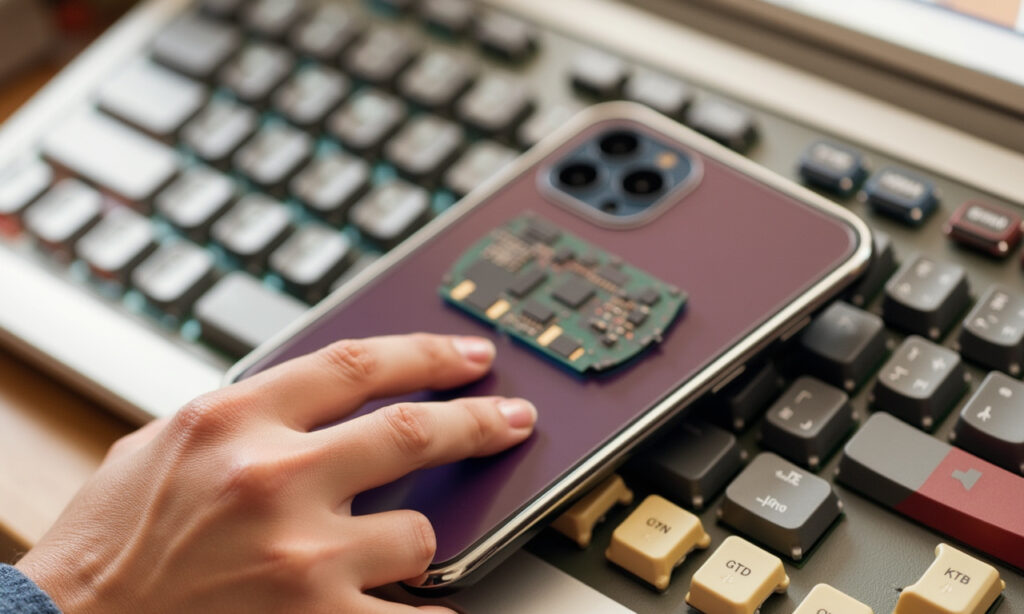In a significant move that could ease the financial burden on both consumers and tech giants, the Trump administration has announced that smartphones, computers, and other critical electronics will be exempt from the recent surge in global reciprocal tariffs. This decision comes after a tumultuous week in the markets triggered by the escalating trade war with China.
The Tariff Landscape
The trade war between the US and China has been intensifying, with the US imposing a 145% tariff on goods from China, which led to retaliatory tariffs from China, raising the stakes even higher. This tariff escalation had major implications for the tech industry, as many consumer electronics, including smartphones and computers, are either manufactured in China or contain significant Chinese components.
Impact on Consumer Electronics
The imposition of a 145% tariff would have led to a substantial increase in consumer prices for these electronics. For instance, Apple, which heavily relies on Chinese manufacturing, saw its market value drop by $640 billion in just one week following the tariff announcement. This drop reflected the market’s anticipation of significant price hikes and potential supply chain disruptions.
The Exemption
In response to the economic pressure and market volatility, the Trump administration has chosen to exempt smartphones, computers, and other key electronics from the 145% tariff. This exemption, published by the U.S. Customs and Border Protection, aims to mitigate the immediate financial impact on American consumers and tech companies.
Specific Items Exempted
The list of exempt items includes:
- Smartphones
- Computers
- Monitors
- Certain TVs
- Machines used to make semiconductors
This move is seen as a temporary reprieve, allowing companies time to potentially shift their manufacturing processes to the US or other countries less affected by the tariffs.
Sectoral Tariffs and Future Flexibility
While the current exemption provides relief, it does not mean that all tariffs are off the table. A 10% baseline tariff will still apply to Chinese goods, and there is an ongoing consideration for sectoral tariffs that could be lower than the current rates but still impactful.
President Trump has indicated a willingness to show flexibility in certain sectors, acknowledging that some companies are more affected by tariffs than others. This flexibility could lead to lower tariffs for technology sectors like semiconductors in the future.
Reactions and Implications
The decision to exempt these electronics has been met with mixed reactions. Tech giants like Apple, which had been facing potential price hikes, are likely to benefit from this move. However, some Democrats have criticized the administration for what they see as favoritism towards big businesses that can make significant donations and lobby for exemptions.
Consumer and Market Impact
For consumers, this exemption means that the prices of smartphones, computers, and other electronics are unlikely to skyrocket immediately due to the tariffs. However, some devices may still see price increases as companies adjust to the ongoing trade uncertainties.
The market reaction has been cautious, with the stock market and bond market still recovering from the initial shock of the tariff announcements. Experts have warned of the risks of recession and inflation due to the trade war, although the current exemptions may help stabilize the situation temporarily.
Conclusion
The exemption of smartphones and other key electronics from the Trump administration’s tariffs is a significant development in the ongoing trade war. While it provides immediate relief, it also highlights the complex and dynamic nature of global trade policies and their impact on the tech industry. As the situation continues to evolve, it remains crucial for consumers, companies, and policymakers to stay informed and adapt to the changing landscape.
Further Reading
For more on the impact of tariffs on the tech industry and the latest developments in global trade policies, stay tuned to our updates and analysis.
